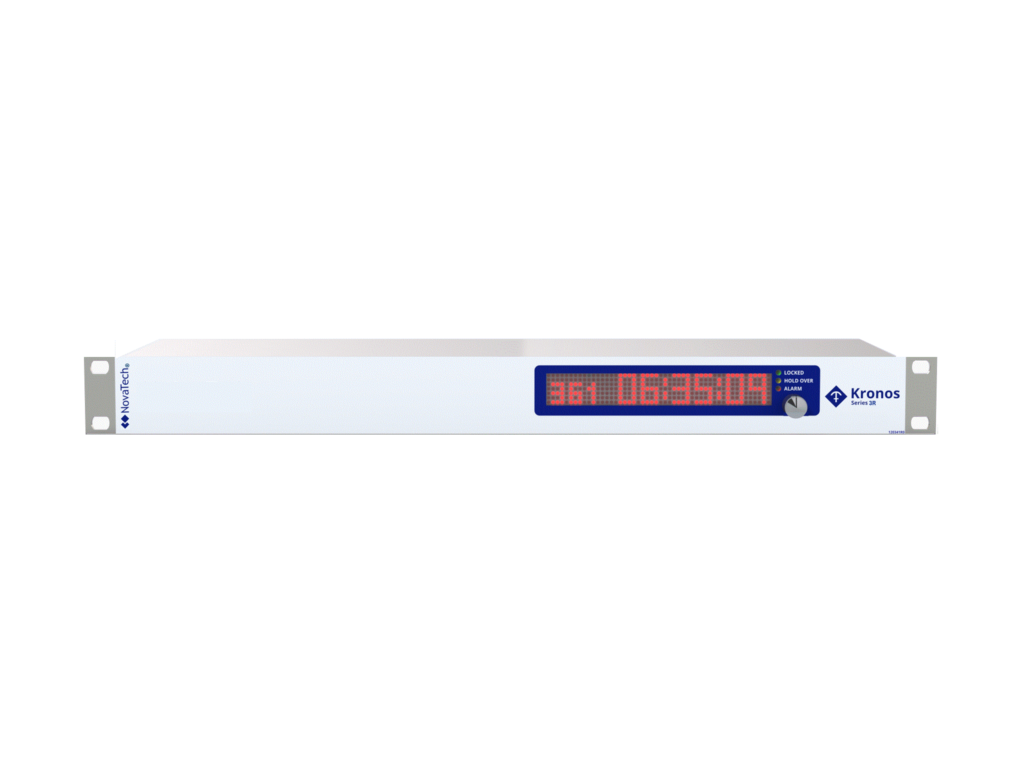
SCADA Master Serves as Data Hub for Enterprise Software Integration
PUBLISHED ON Jun 30, 2023
For smaller municipal utilities and co-ops, it can be challenging to upgrade and automate existing distribution substations and support infrastructure due to space, budget, labor, technical skills, and system compatibility constraints. Many still have not installed SCADA systems for the remote management and control of multiple substations. Others have SCADA but seek to incrementally adopt increasingly essential enterprise software solutions such as outage management systems, dispatch software, advanced metering infrastructure, geographic information systems, and automatic line sectionalizing, adding to the difficulty. These enterprise systems are typically available from multiple third-party vendors, complicating integration with the existing systems typically found in small utilities. Large, investor-owned utilities (IOUs) can avoid integration issues since they generally procure comprehensive enterprise software packages…but these systems are too costly and complicated for smaller utilities. Co-ops and munis need affordable, scalable enterprise solutions that can seamlessly access and share any data from the substation.
In response to that need, leading communication and automation platforms – which for decades have served as the substation “hub” of SCADA systems – now serve valuable substation status information to third-party enterprise software by adopting established communication protocols such as MultiSpeak. In doing so, municipal utilities and co-ops can utilize the enterprise software they need to increase system efficiency and reliability on their own timelines and budgets.
“By incorporating an established industry protocol like MultiSpeak, the SCADA master can disseminate critical information at the substation level to improve enterprise software’s effectiveness and accuracy (Figure 1). This provides small municipal utilities and co-ops with a solution that facilitates the integration of third-party software into their overall operation that is ready and able to communicate with their SCADA system,” says Ray Wright, Senior VP of Marketing for NovaTech Automation. This substation automation company has served the power transmission and distribution market for over 40 years.
NovaTech Automation is serving up valuable substation status information to third-party enterprise software through the adoption of established communication protocols such as MultiSpeak (Figure 2).
NovaTech’s Orion Substation Automation Platform has long served the industry as a communication and automation processor that can connect to nearly any substation device in its native protocol, perform advanced math and logic, and securely present the source or calculated data to any number of clients in their own protocol. The Orion system can be integrated with any equipment, including competitors.
“The automation platform has always been an enterprise hub for in-substation data. As a SCADA Master, the platform can now also disseminate substation data (Figure 3) into enterprise applications such as outage management software, GIS, dispatch, AMI, and AMR,” says Wright.
According to Wright, NovaTech incorporated MultiSpeak into the Orion substation platform after receiving repeated customer requests. MultiSpeak was initially developed by The National Rural Electric Cooperative Association (NRECA) in 2000 to facilitate communication between automated metering platforms and billing systems. Over the years, MultiSpeak has been refined into a common standard for integrating myriad enterprise software systems. Today, it is used by over 800 utilities in over 20 countries.
“We had dozens of customers that said MultiSpeak was a requirement. So, we wrote the spec, and our engineering group incorporated it. Now smaller utilities do not have to purchase a costly, ‘one-size fits all’ enterprise software package – only what they need and can afford,” says Wright.
NovaTech is now using MultiSpeak to share information with several leading outage management systems and will create protocol extensions to disseminate data to many other enterprise packages such as Dispatch, AMI, and GIS.
Incorporating an outage management system (OMS) for co-ops and municipal utilities can expedite a response to the community’s concerns when a power outage occurs. Using MultiSpeak, Orion SCADA can provide breaker status to the OMS, simplifying configuration and implementation.
Dispatch software is another popular option and can facilitate more efficient dispatching of utility trucks and crews to make repairs during an outage or for routine maintenance tasks. This may include mapping, vehicle monitoring, routing, and real-time GPS tracking. Data from Orion SCADA can provide crews with an additional indication of what needs to be repaired (i.e.-relay, switch, modem, AC supply, power supply, comm card, etc.) so they can be better prepared with needed spares and tools.
Advanced Metering Infrastructure (AMI) and Automatic Meter Reading (AMR) systems allow electric utilities to collect and harness the power of smart meters for load monitoring, load control/demand response, distributed generation, and customer engagement. When AMI is combined with historical load data from SCADA devices, algorithms can be developed to monitor and alert utility employees of large loads and corresponding voltage imbalances that can damage grid and customer devices and equipment. To enhance communication and decision-making, a GIS mapping company may map and coordinate assets such as meters, utility poles, and pole and feeder-mounted monitoring equipment. Sharing data via MultiSpeak between GIS and Dispatch, OMS, and SCADA facilitates more efficient dispatching and routing of utility trucks and service crews. When provided with specific outage data from the SCADA Master, crews can also bring all necessary tools and materials to service the equipment, shortening the duration of any outage.
Fault location, isolation, and service restoration (FLISR) can also be expedited with full coordination between substation and enterprise data. FLISR technology can be used to automatically restore power to customers in the event of a permanent fault to restore service as quickly as possible. FLISR systems require exceptional coordination between technologies such as SCADA, OMS, distribution management systems, automated feeder switches and reclosers, line monitors, communication networks, grid analytics, models, and data processing tools.
Despite the single-supplier attractiveness of comprehensive “one size fits all” enterprise software systems, their cost and complexity have traditionally presented major obstacles to implementation by smaller munis and co-ops. Alternatively, using “best-in-class” packages – for OMS, Dispatch, AMI, GIS, FLISR, and SCADA – and knitting them together into a complete system via MultiSpeak, is more economically justified and manageable for smaller utilities.
“The combination of best-in-class enterprise packages, a modern SCADA data hub, and MultiSpeak enable coops and munis to implement systems that rival the functionality and value of the larger IOU systems,” says Wright. “These utilities can add enterprise packages as needed, maybe starting small with SCADA and OMS, then adding Dispatch and others. Add the suppliers of these smaller, purpose-designed packages that can move faster, enhancing functionality quickly. For example, the Orion SCADA data hub offers new options for data dissemination including the ICCP protocol (for transferring data between SCADA/EMS systems) and new techniques for exporting archived data to analysis and reporting packages. Stay tuned for more.”
For smaller municipal utilities and co-ops, it can be challenging to upgrade and automate existing distribution substations and support infrastructure due to space, budget, labor, technical skills, and system compatibility constraints. Many still have not installed SCADA systems for the remote management and control of multiple substations. Others have SCADA but seek to incrementally adopt increasingly essential enterprise software solutions such as outage management systems, dispatch software, advanced metering infrastructure, geographic information systems, and automatic line sectionalizing, adding to the difficulty. These enterprise systems are typically available from multiple third-party vendors, complicating integration with the existing systems typically found in small utilities. Large, investor-owned utilities (IOUs) can avoid integration issues since they generally procure comprehensive enterprise software packages…but these systems are too costly and complicated for smaller utilities. Co-ops and munis need affordable, scalable enterprise solutions that can seamlessly access and share any data from the substation.
In response to that need, leading communication and automation platforms – which for decades have served as the substation “hub” of SCADA systems – now serve valuable substation status information to third-party enterprise software by adopting established communication protocols such as MultiSpeak. In doing so, municipal utilities and co-ops can utilize the enterprise software they need to increase system efficiency and reliability on their own timelines and budgets.
“By incorporating an established industry protocol like MultiSpeak, the SCADA master can disseminate critical information at the substation level to improve enterprise software’s effectiveness and accuracy (Figure 1). This provides small municipal utilities and co-ops with a solution that facilitates the integration of third-party software into their overall operation that is ready and able to communicate with their SCADA system,” says Ray Wright, Senior VP of Marketing for NovaTech Automation. This substation automation company has served the power transmission and distribution market for over 40 years.
NovaTech Automation is serving up valuable substation status information to third-party enterprise software through the adoption of established communication protocols such as MultiSpeak (Figure 2).
NovaTech’s Orion Substation Automation Platform has long served the industry as a communication and automation processor that can connect to nearly any substation device in its native protocol, perform advanced math and logic, and securely present the source or calculated data to any number of clients in their own protocol. The Orion system can be integrated with any equipment, including competitors.
“The automation platform has always been an enterprise hub for in-substation data. As a SCADA Master, the platform can now also disseminate substation data (Figure 3) into enterprise applications such as outage management software, GIS, dispatch, AMI, and AMR,” says Wright.
According to Wright, NovaTech incorporated MultiSpeak into the Orion substation platform after receiving repeated customer requests. MultiSpeak was initially developed by The National Rural Electric Cooperative Association (NRECA) in 2000 to facilitate communication between automated metering platforms and billing systems. Over the years, MultiSpeak has been refined into a common standard for integrating myriad enterprise software systems. Today, it is used by over 800 utilities in over 20 countries.
“We had dozens of customers that said MultiSpeak was a requirement. So, we wrote the spec, and our engineering group incorporated it. Now smaller utilities do not have to purchase a costly, ‘one-size fits all’ enterprise software package – only what they need and can afford,” says Wright.
NovaTech is now using MultiSpeak to share information with several leading outage management systems and will create protocol extensions to disseminate data to many other enterprise packages such as Dispatch, AMI, and GIS.
Incorporating an outage management system (OMS) for co-ops and municipal utilities can expedite a response to the community’s concerns when a power outage occurs. Using MultiSpeak, Orion SCADA can provide breaker status to the OMS, simplifying configuration and implementation.
Dispatch software is another popular option and can facilitate more efficient dispatching of utility trucks and crews to make repairs during an outage or for routine maintenance tasks. This may include mapping, vehicle monitoring, routing, and real-time GPS tracking. Data from Orion SCADA can provide crews with an additional indication of what needs to be repaired (i.e.-relay, switch, modem, AC supply, power supply, comm card, etc.) so they can be better prepared with needed spares and tools.
Advanced Metering Infrastructure (AMI) and Automatic Meter Reading (AMR) systems allow electric utilities to collect and harness the power of smart meters for load monitoring, load control/demand response, distributed generation, and customer engagement. When AMI is combined with historical load data from SCADA devices, algorithms can be developed to monitor and alert utility employees of large loads and corresponding voltage imbalances that can damage grid and customer devices and equipment. To enhance communication and decision-making, a GIS mapping company may map and coordinate assets such as meters, utility poles, and pole and feeder-mounted monitoring equipment. Sharing data via MultiSpeak between GIS and Dispatch, OMS, and SCADA facilitates more efficient dispatching and routing of utility trucks and service crews. When provided with specific outage data from the SCADA Master, crews can also bring all necessary tools and materials to service the equipment, shortening the duration of any outage.
Fault location, isolation, and service restoration (FLISR) can also be expedited with full coordination between substation and enterprise data. FLISR technology can be used to automatically restore power to customers in the event of a permanent fault to restore service as quickly as possible. FLISR systems require exceptional coordination between technologies such as SCADA, OMS, distribution management systems, automated feeder switches and reclosers, line monitors, communication networks, grid analytics, models, and data processing tools.
Despite the single-supplier attractiveness of comprehensive “one size fits all” enterprise software systems, their cost and complexity have traditionally presented major obstacles to implementation by smaller munis and co-ops. Alternatively, using “best-in-class” packages – for OMS, Dispatch, AMI, GIS, FLISR, and SCADA – and knitting them together into a complete system via MultiSpeak, is more economically justified and manageable for smaller utilities.
“The combination of best-in-class enterprise packages, a modern SCADA data hub, and MultiSpeak enable coops and munis to implement systems that rival the functionality and value of the larger IOU systems,” says Wright. “These utilities can add enterprise packages as needed, maybe starting small with SCADA and OMS, then adding Dispatch and others. Add the suppliers of these smaller, purpose-designed packages that can move faster, enhancing functionality quickly. For example, the Orion SCADA data hub offers new options for data dissemination including the ICCP protocol (for transferring data between SCADA/EMS systems) and new techniques for exporting archived data to analysis and reporting packages. Stay tuned for more.”





